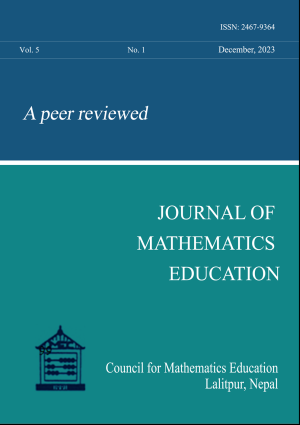Students' Perceptions and Interpretations of Democratic Practices in Mathematics Classroom
DOI:
https://doi.org/10.3126/jme.v5i1.60847Keywords:
Democratic Practices, Factor Analysis, Reliability, Positivism, SamplingAbstract
This study aimed to find out students’ perceptions and interpretations of democratic practices in mathematics classrooms. A quantitative research strategy based on the positivist paradigm was used. In Kathmandu district's 20 public secondary schools, 200 respondents in the ninth grade—100 boys and 100 girls—were randomly selected for the sample. Data collection was carried out using a self-created questionnaire that had 25 statements and five Likert-type response alternatives. The self-developed questionnaire's validity was verified by the opinions of experts, and reliability was established by the Cronbach's alpha, 0.82. I prepared four factors according to loading components. The results of the research showed that teachers should use democratic practices to engage students in the learning process and prepare them for the needs of democratic values in classroom practices.




